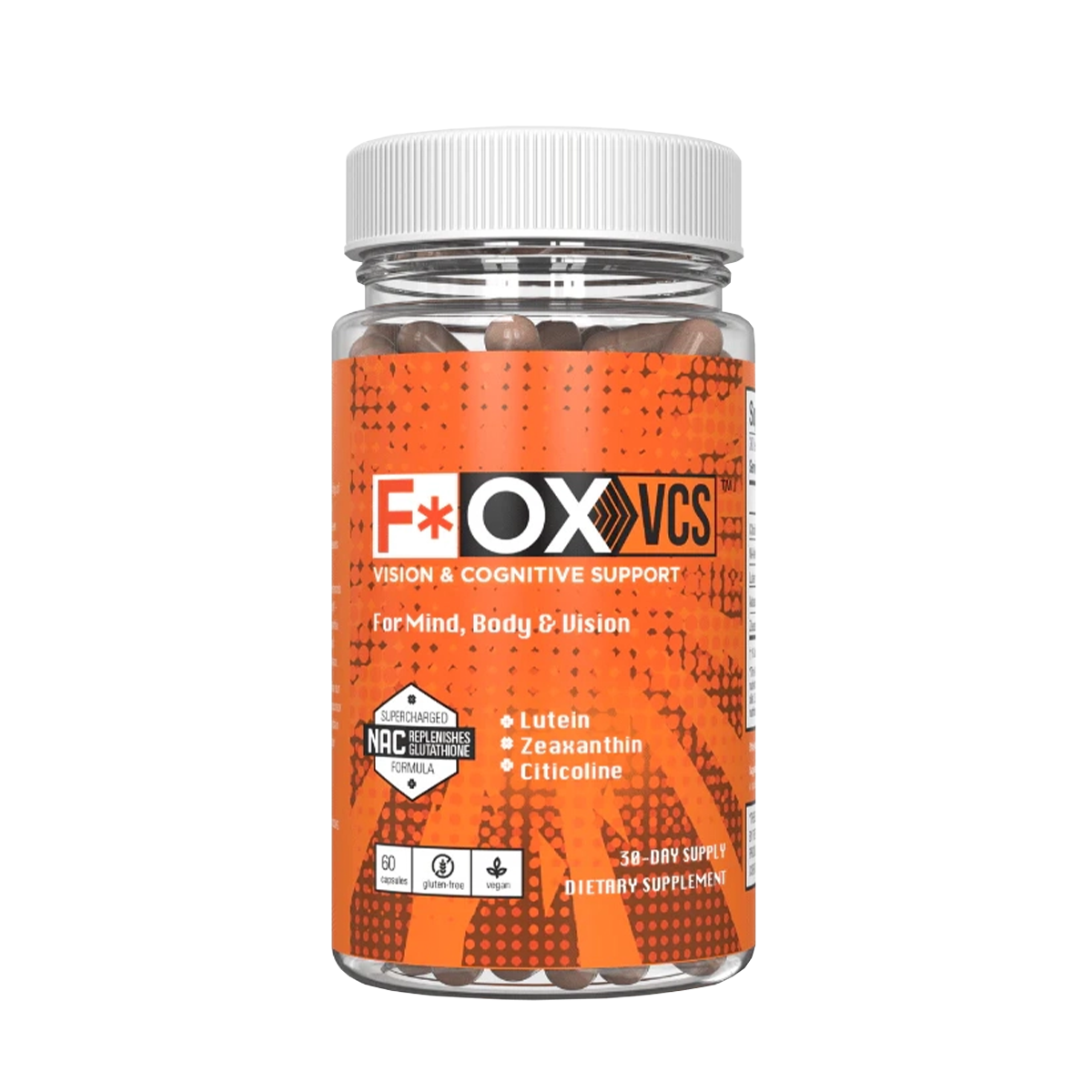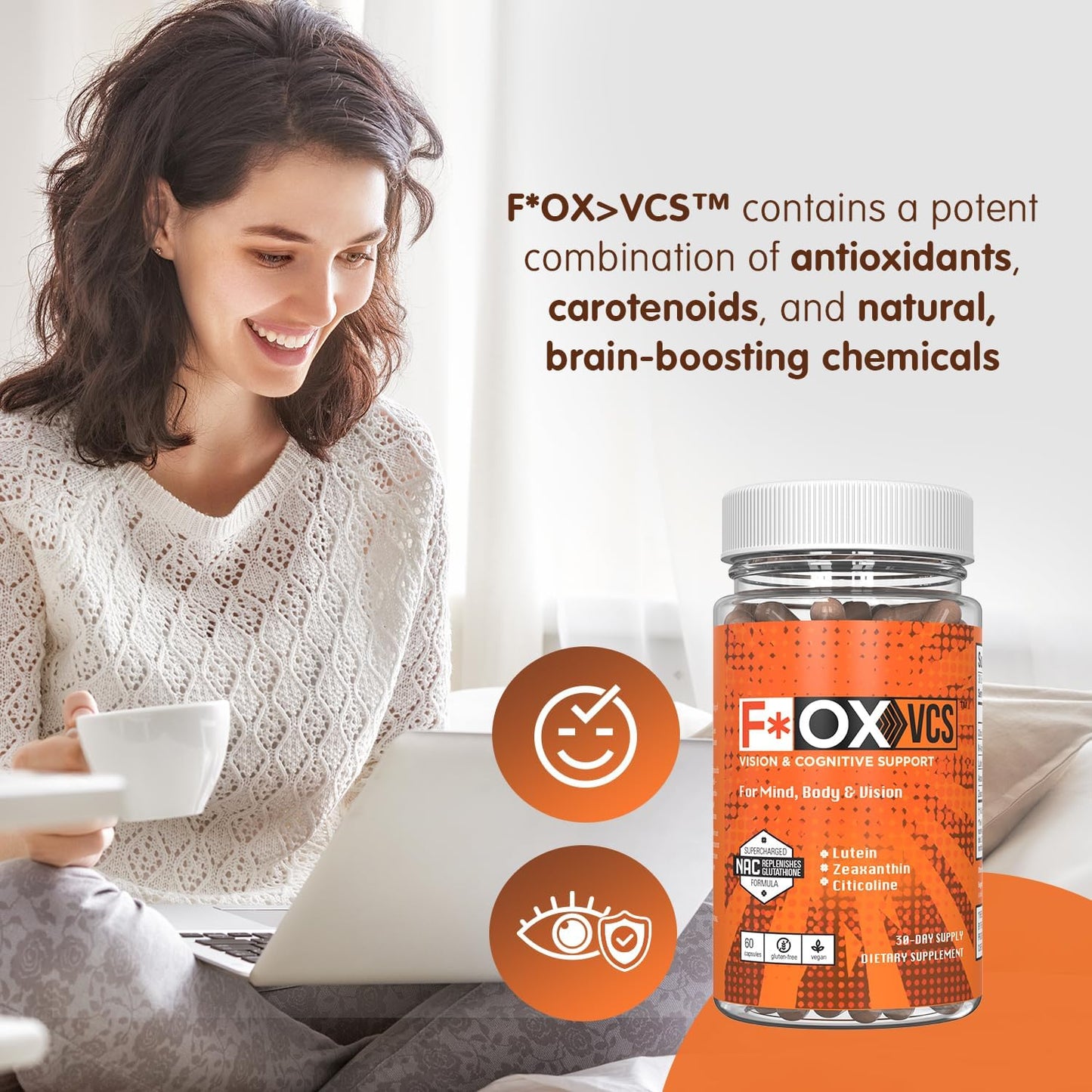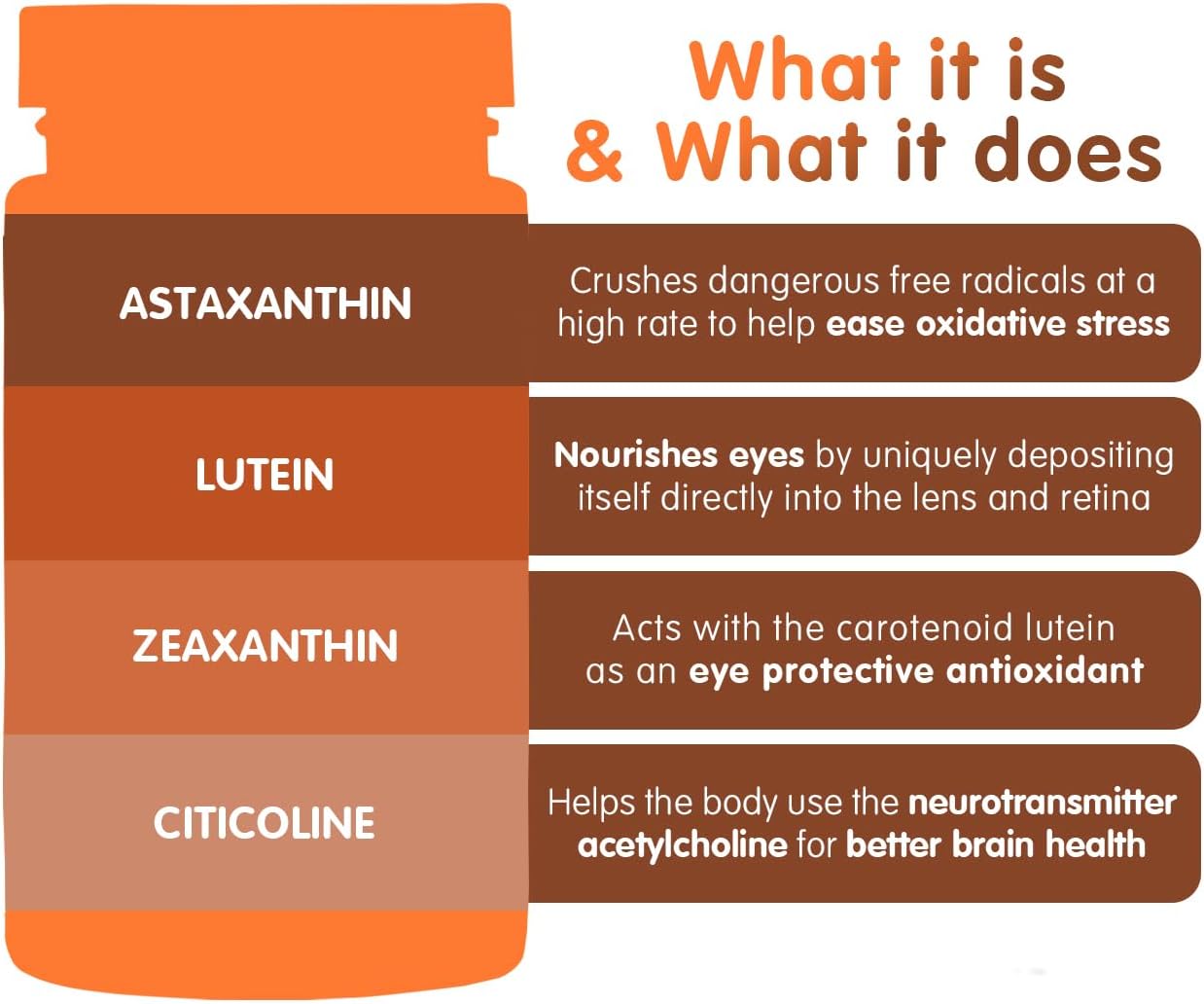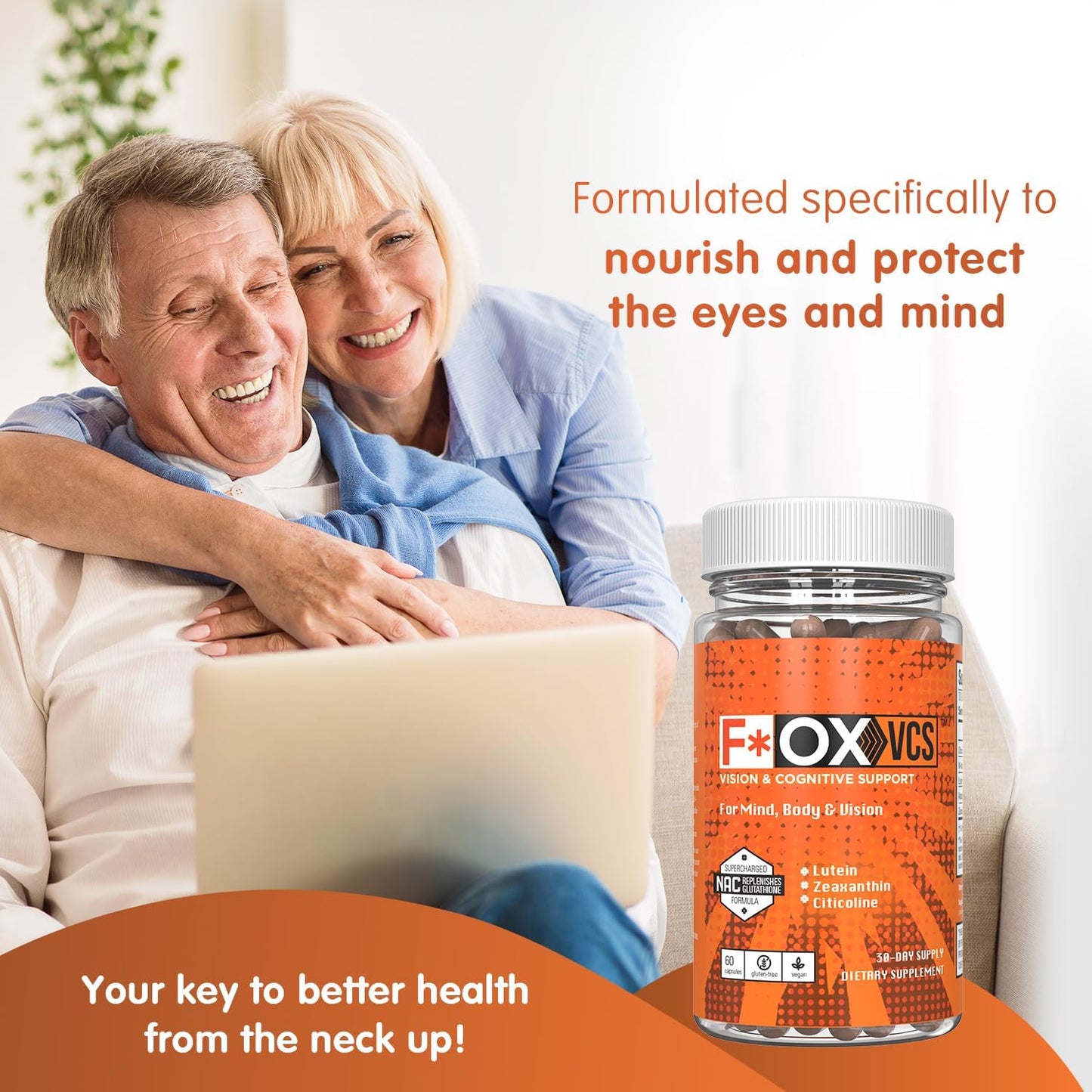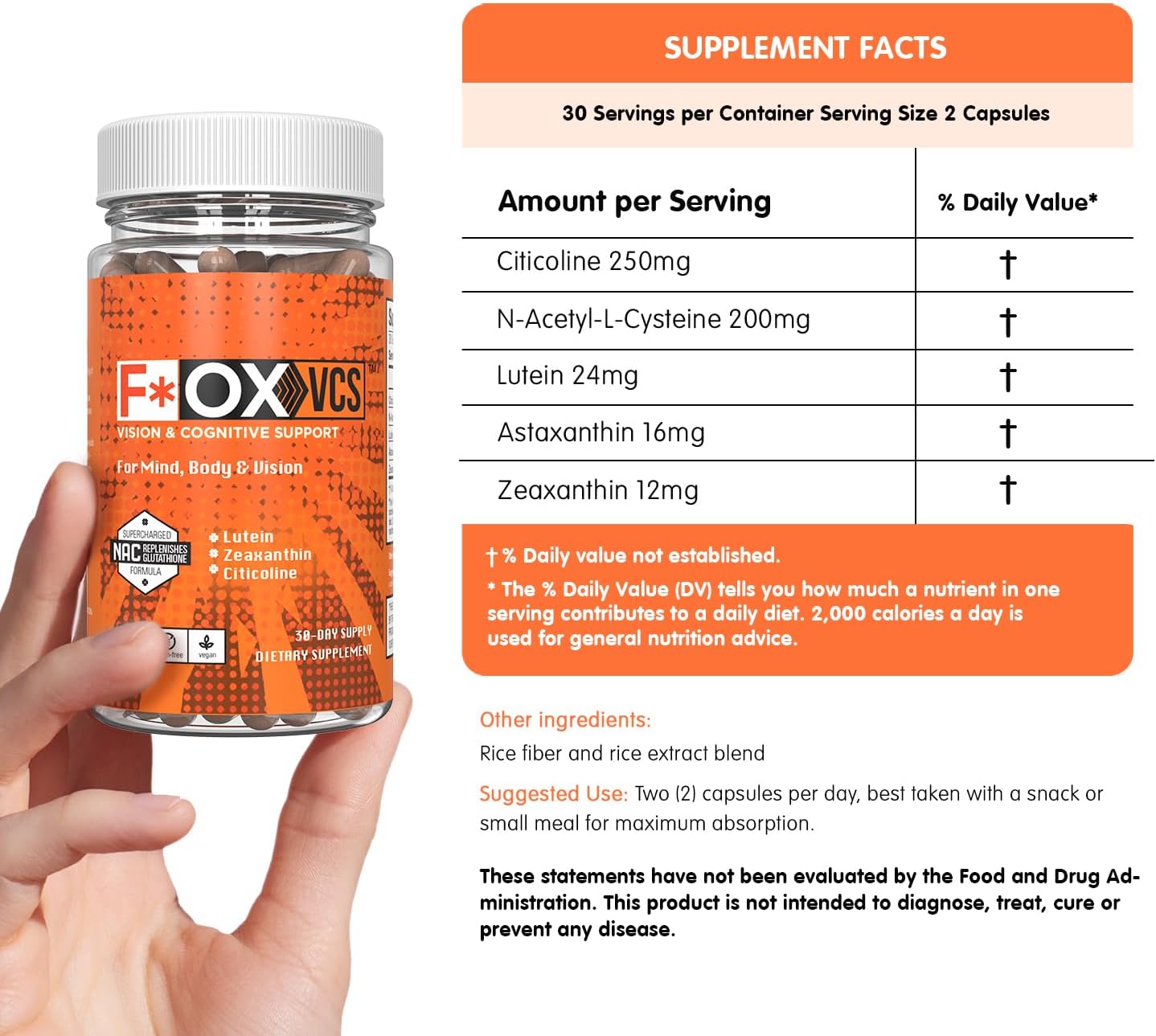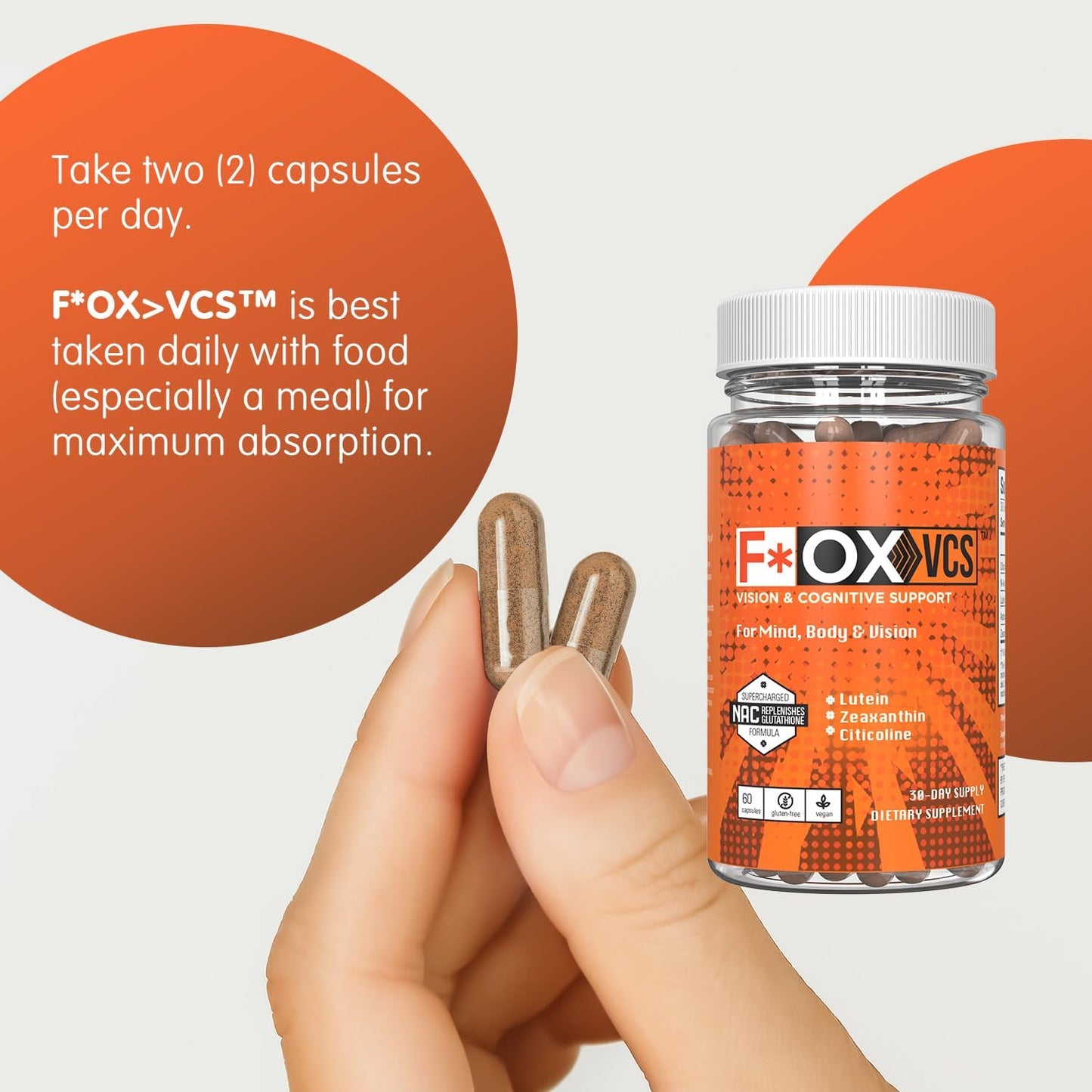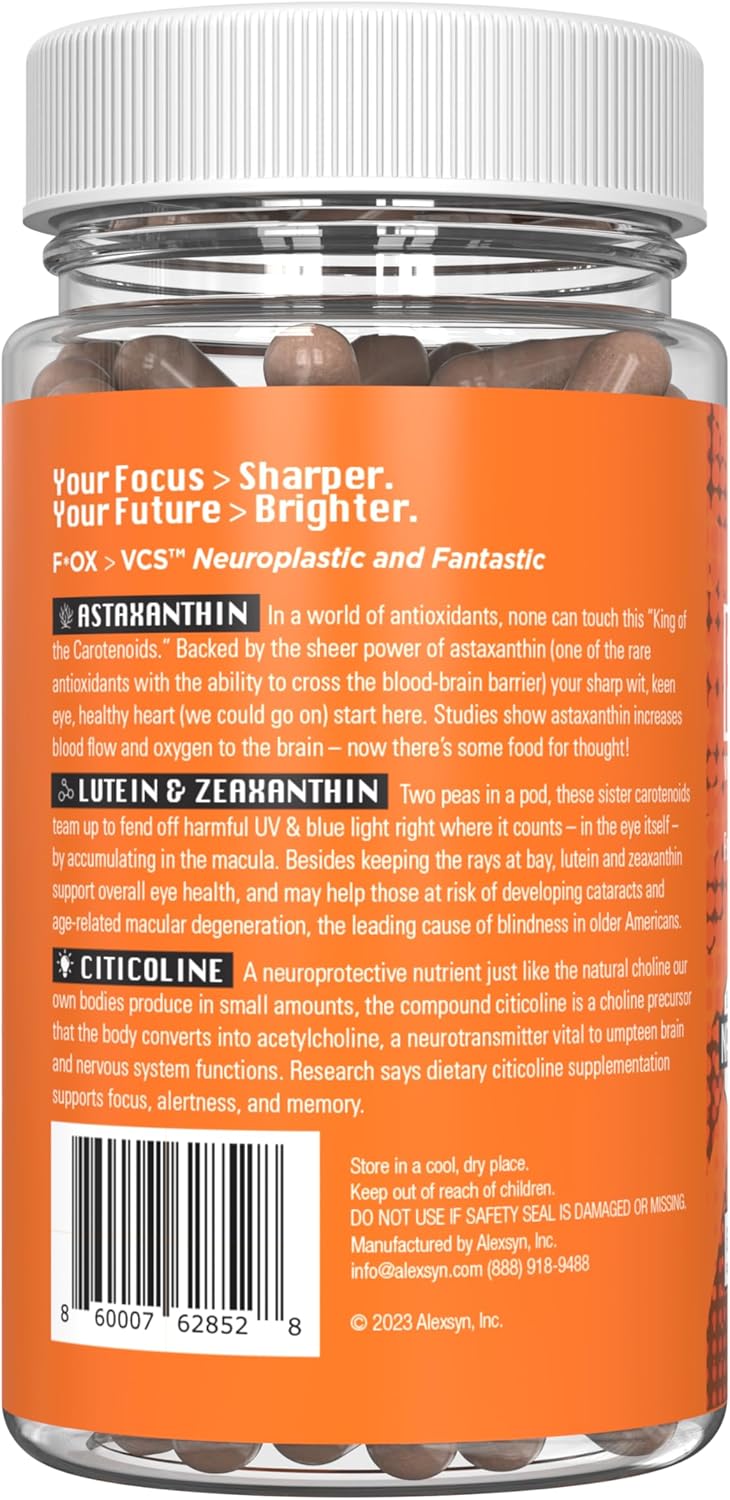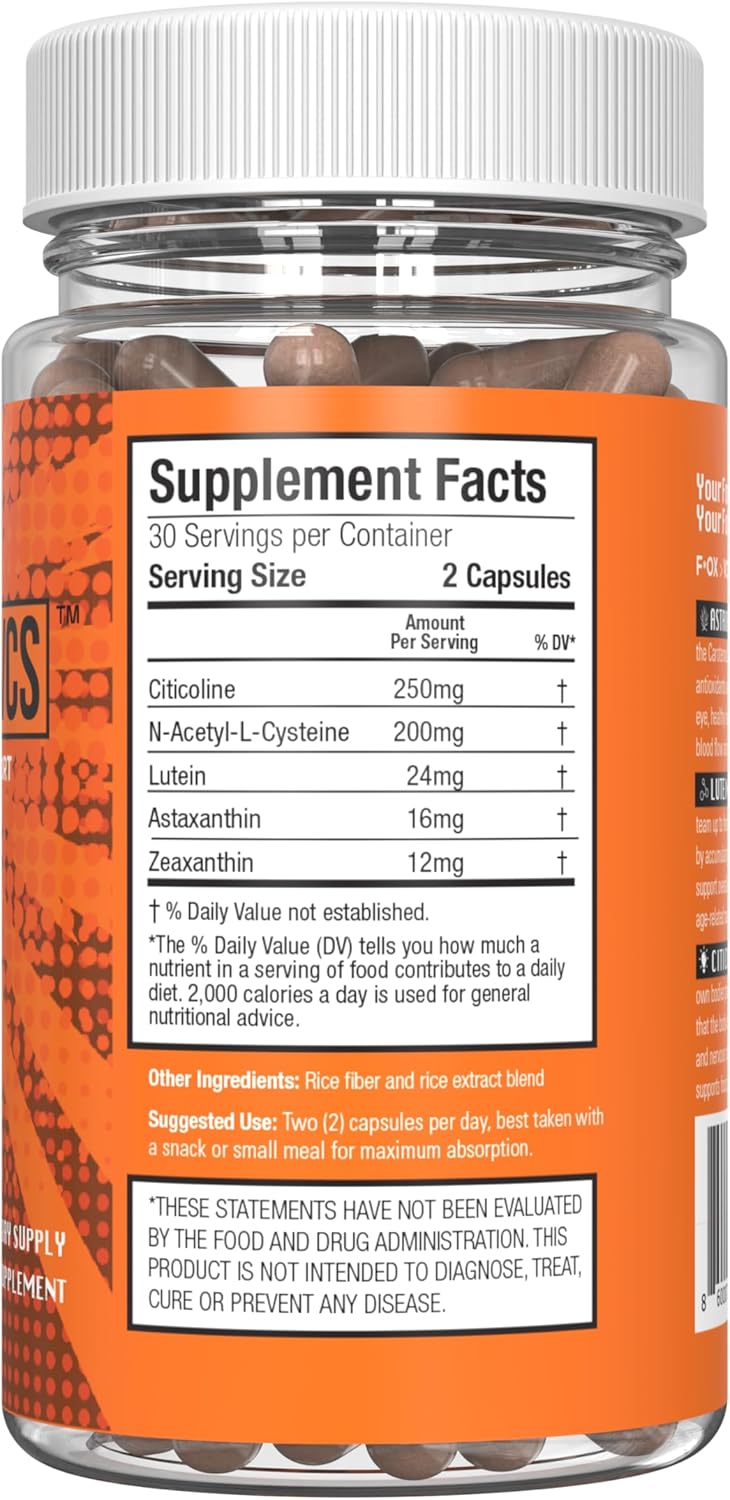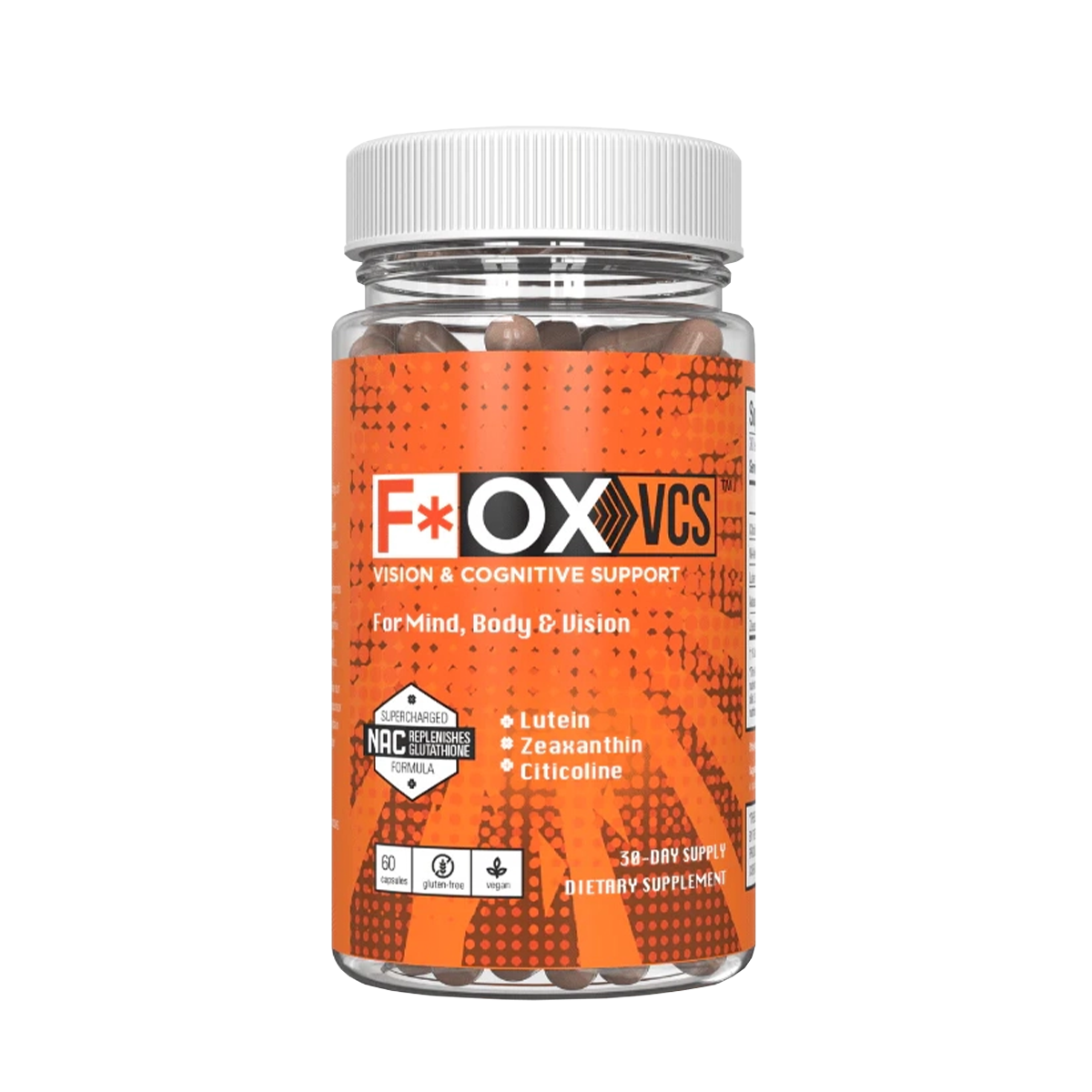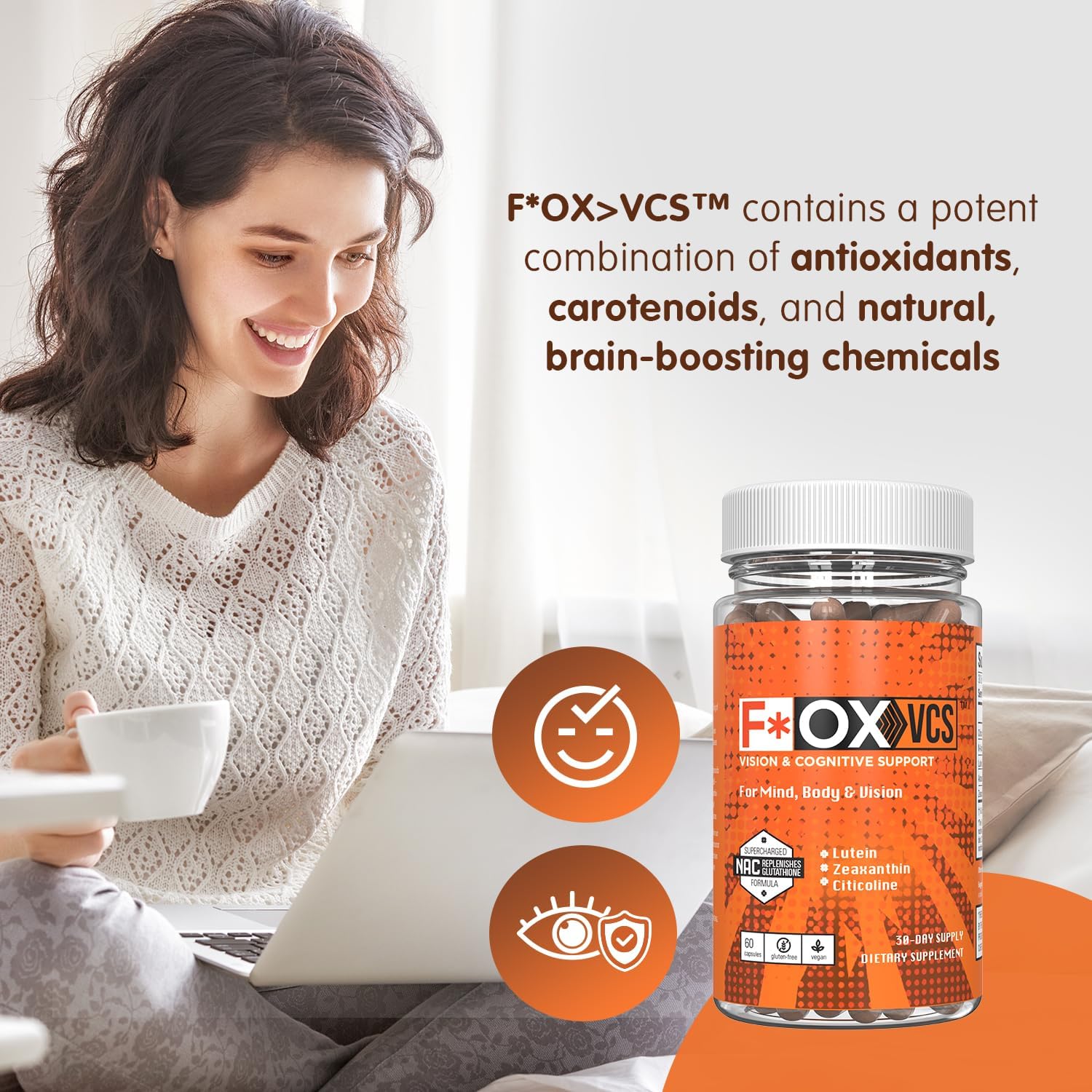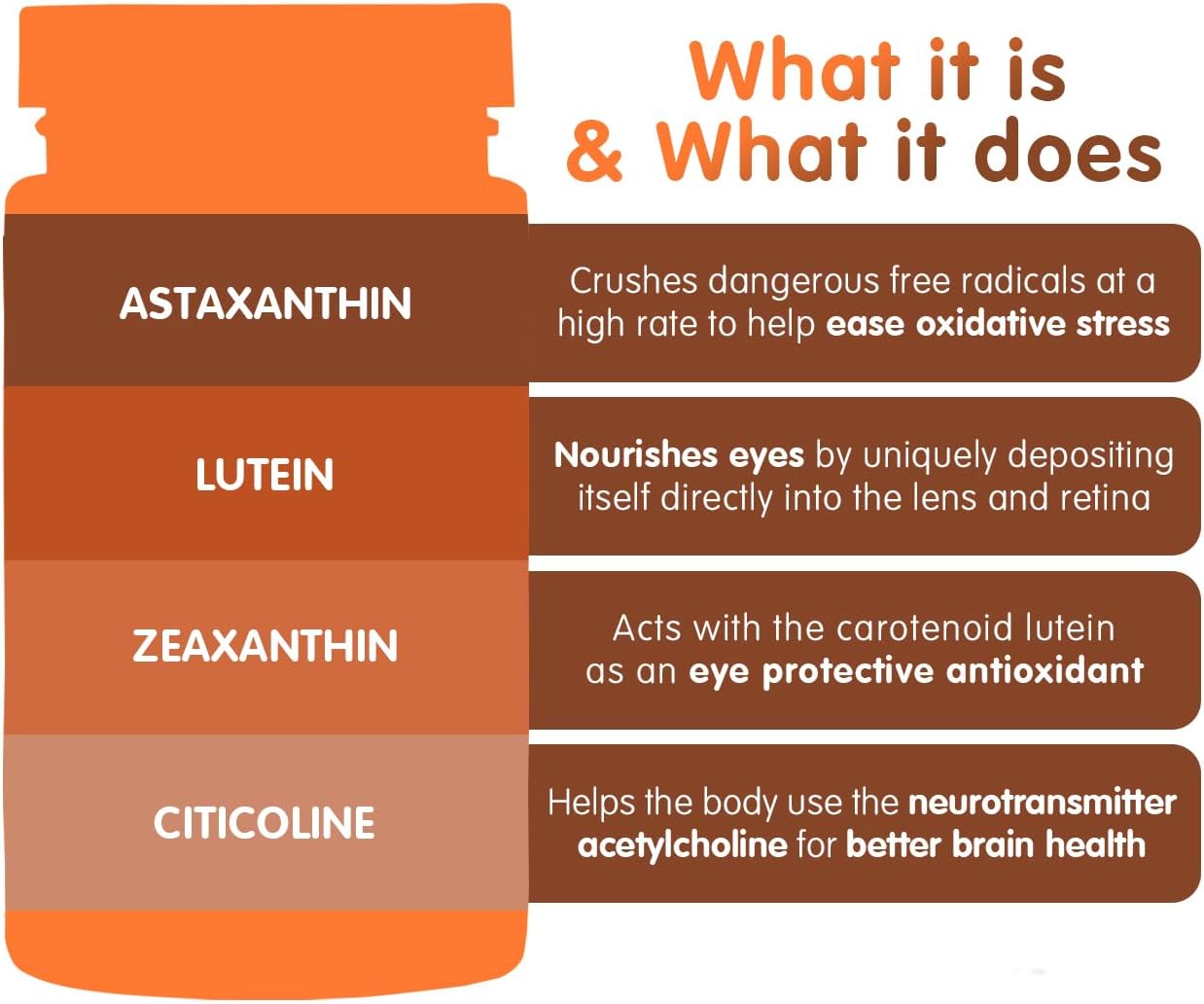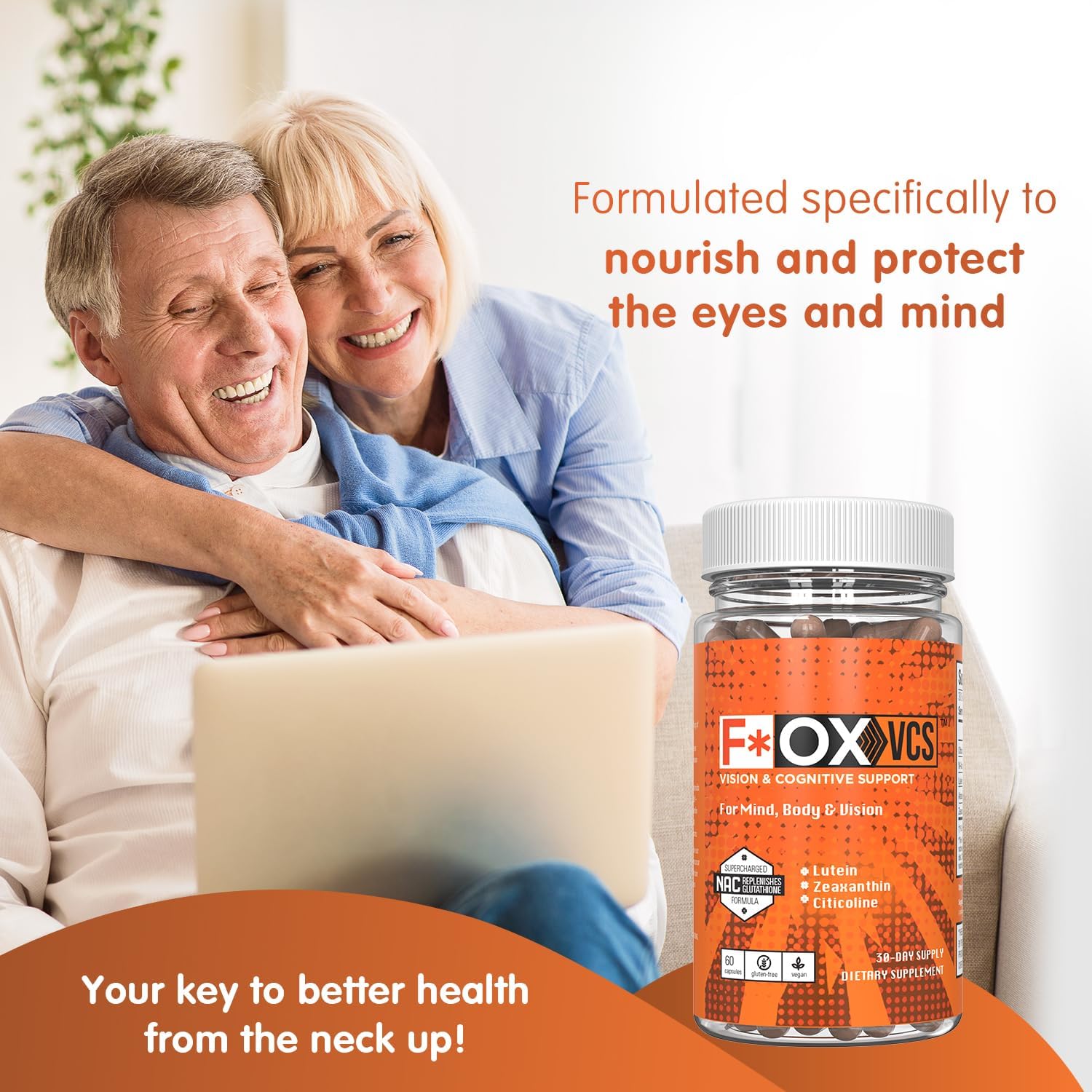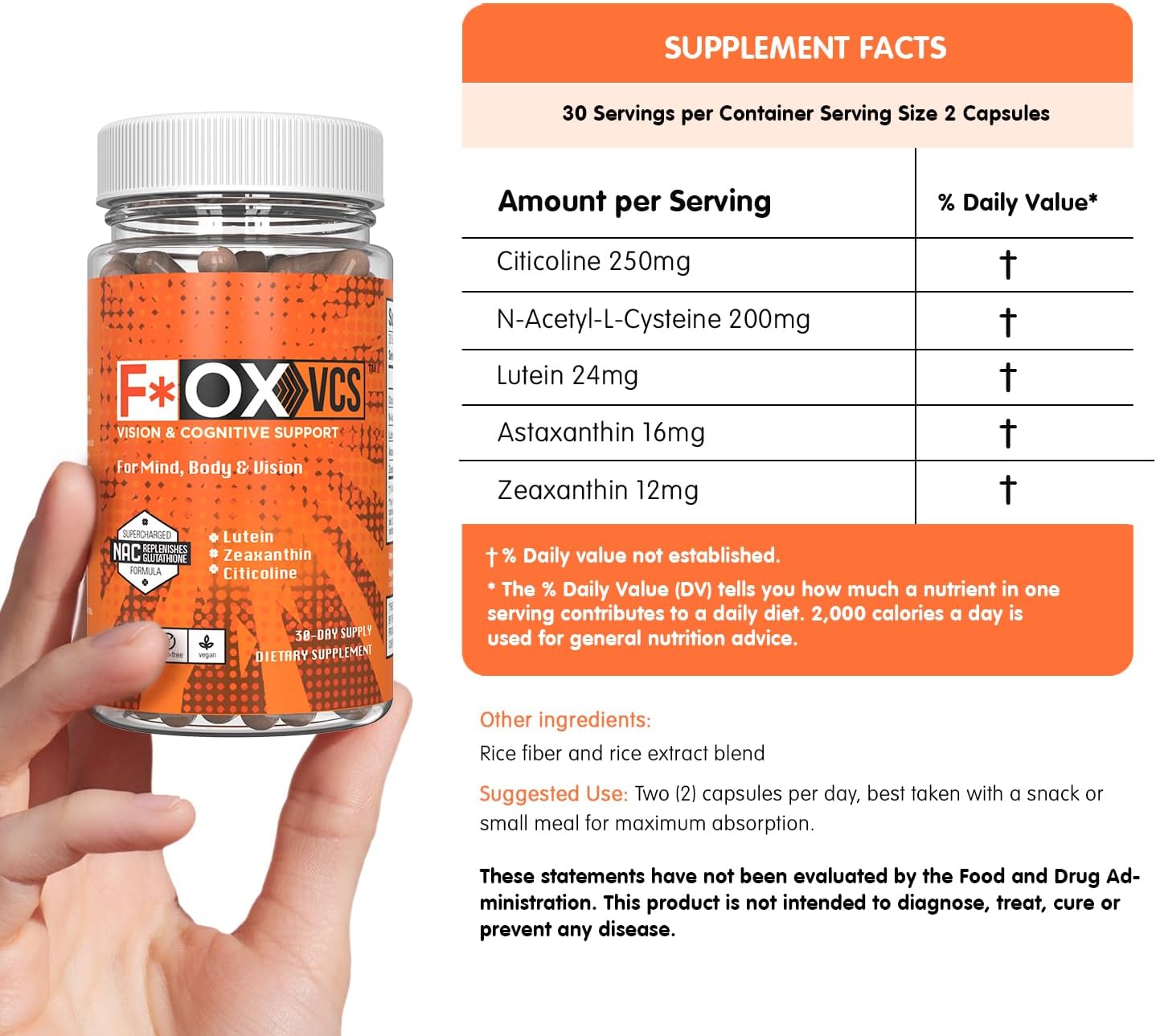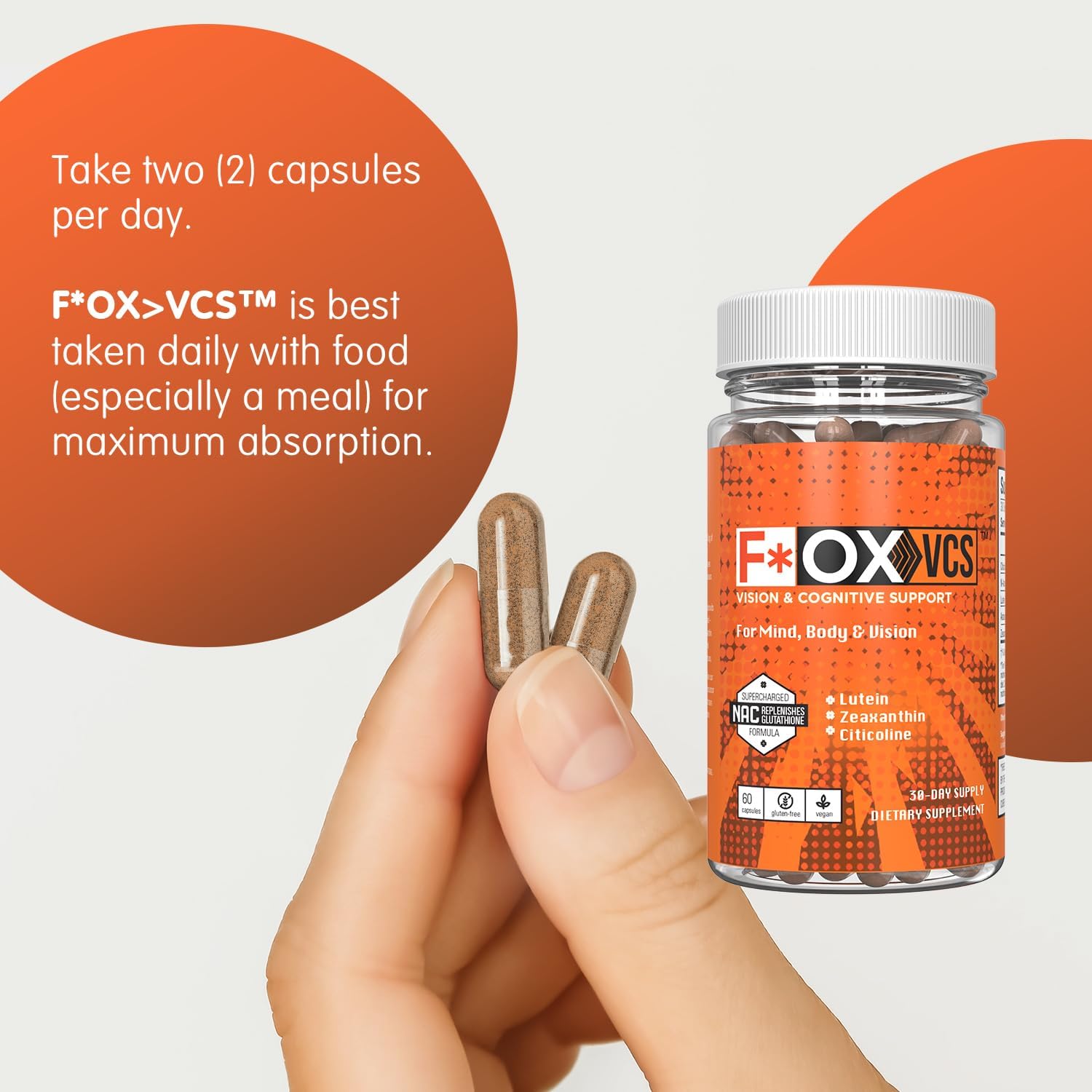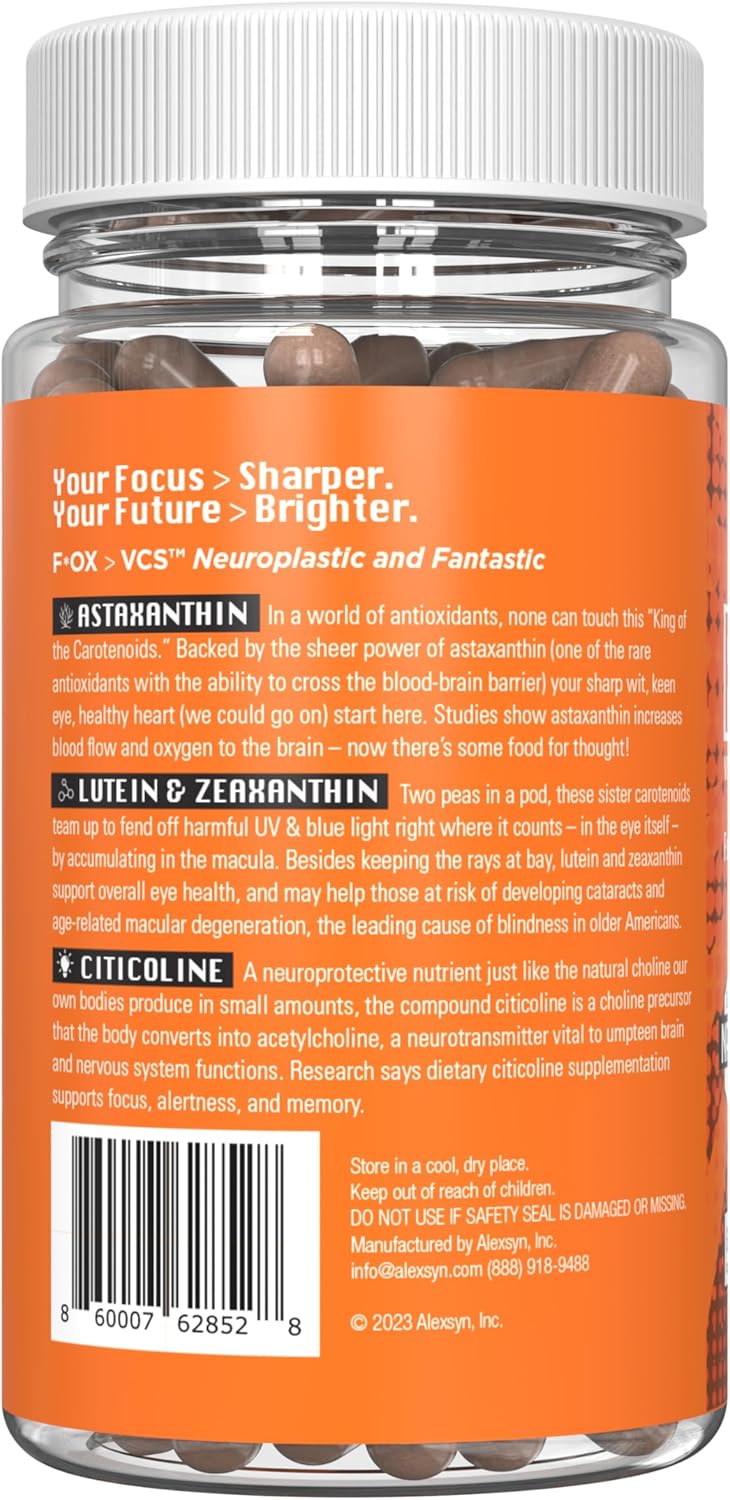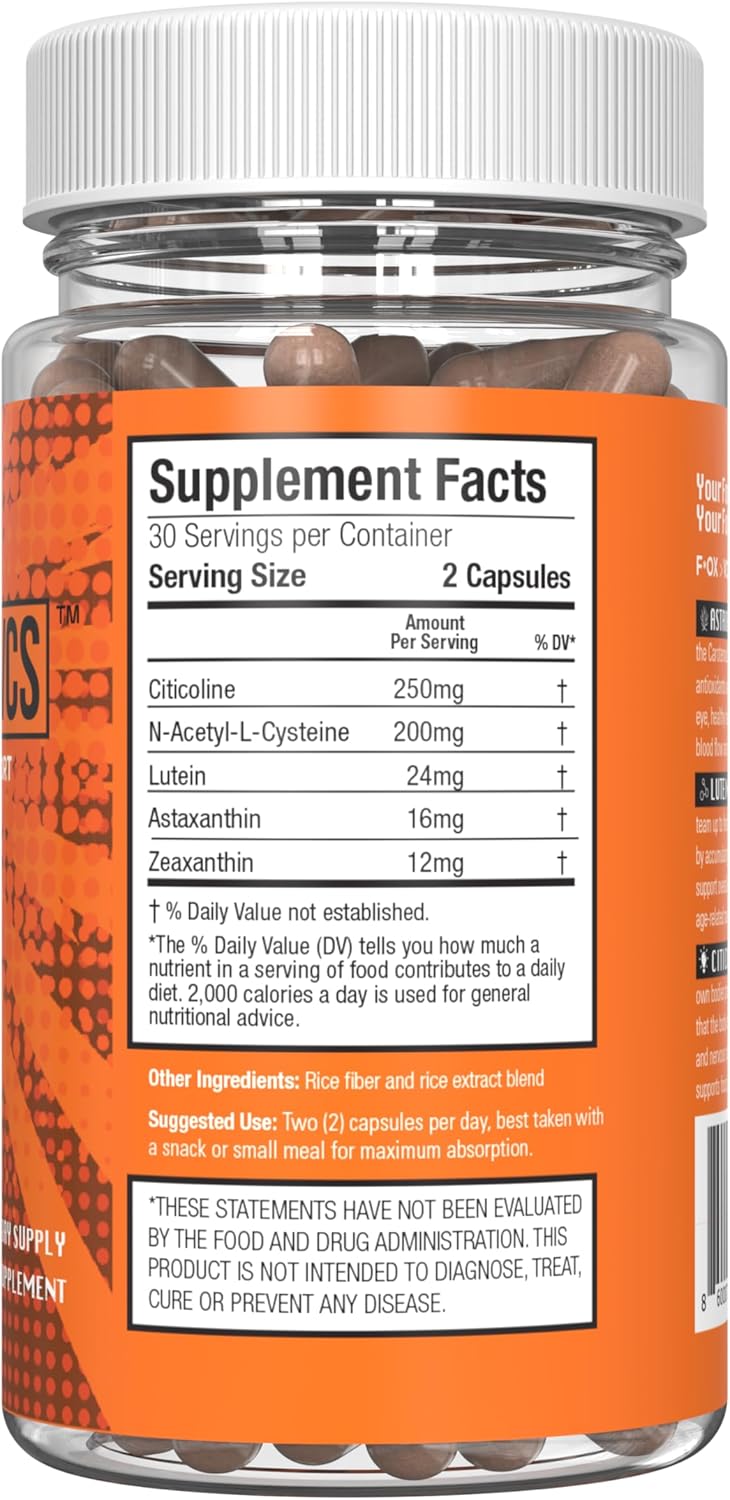F*OX>VCS™
F*OX>VCS™
Couldn't load pickup availability
Vision & Cognitive Support with F*OX>VCS™
F*OX>VCS™. Better health from the neck up! Start now with our newest supplement made to keep your vision> keen and your future> bright.
Formulated specifically to nourish and protect the eyes and mind, F*OX>VCS™ contains a potent combination of antioxidants, carotenoids, and natural, brain-boosting chemicals.
Make F*OX>VCS™ part of your be>average equation
- Eye Health Support
- Brain Health & Cognitive Support
- Oxidative Stress Defense
Suggested Use: Two (2) capsules per day, preferably taken with a snack or small meal for maximum absorption.
How F*OX>VCS™ Works
Aging not so gracefully? Losing your vision and your readers day after day? Not a pretty picture!
F*OX>VCS™ helps you stay sharp with neuroprotective nutrients that team up to support eye health and enhance cognitive function. A quick and easy way to understand how F*OX>VCS™ works is by visualizing one of those wall charts you see in police shows with a bunch of zig-zagging lines connecting people, places, events, etc. The diagrams are a type of link analysis tool; serving to tie things together while revealing surprising relationships and far-reaching associations along the way, often leading to jaw-dropping conclusions in the case. In this analogy, taking F*OX>VCS™ is like putting pen to paper and letting your body make the critical connections for a more powerful outcome.
In other words, F*OX>VCS™ is the ultimate interdependent eye and brain health supplement— one’s peanut butter to the other’s jelly, birds of a feather, the perfect couple—you get the idea!
F*OX>VCS™. For the care and feeding of your brain.
Read about the Science behind F*OX>VCS™
Frequently Asked Questions
Click on a question to expand the answer.
In simple terms, oxidative stress describes a negative balance of antioxidants to oxidants (or free radicals) in the body. Oxidative stress results when the body’s antioxidant defense mechanisms become depleted for any number of reasons, including mental and emotional stress, poor nutrition, sleep deprivation, illness or injury. Unfortunately, even the normal aging process contributes to oxidative stress.
Not surprisingly, conditions associated with oxidative stress in the body are wide-ranging, and can include a generalized subpar immune response, inflammatory conditions, and other more deadly diseases affecting the heart, the brain, and/or other organ systems.
Astaxanthin is an ultra-potent antioxidant found in freshwater microalgae and red-pigmented fish and shellfish, like salmon and shrimp. Functionally similar to Beta-carotene, Astaxanthin is a compound known to help maintain eye and skin health, and is thought to aid in muscle strength and endurance, and may reduce muscle fatigue.
NAC is a supplemental form of cysteine, an amino acid. N-acetyl-L-cysteine helps drive glutathione production. Glutathione, a principal antioxidant, neutralizes free radicals, helps detoxify drugs and environmental toxins in the body, and is a major factor in tissue building and repair.
Commonly called the “master antioxidant”, glutathione is a tripeptide molecule made up of the amino acids cysteine, glycine, and glutamic acid. Produced by the liver, glutathione is a key factor in nutrient metabolism, autoimmune response mediation, and cellular repair and replication. Glutathione is also found in food sources, like spinach and avocados, to name two.
The GGT measurement on a routine blood test will tell you. GGT is an enzyme that regulates glutathione production. Important note: GGT has an inverse relationship with intracellular glutathione, so the higher the level of GGT in the blood, the lower the level of intracellular glutathione. High levels of GGT enzymes in the blood may indicate kidney or liver damage and associated diseases like hepatitis, cirrhosis, or heart disease.
Think of it as the difference between a whisper and a shout. Vitamin C also helps raise glutathione levels, but vitamin C doesn’t pack the same punch as astaxanthin—a much more powerful antioxidant with more staying power.
In a word? Absorption. Singular amino acids are more easily absorbed by the body than a big tripeptide glutathione molecule. The goal is to stimulate the body’s natural production of GSH from its precursors, glutamate, cysteine and glycine.
The real question asks what diseases are not associated with oxidative stress! Free radicals don’t discriminate, attacking the cardiovascular system with the same intensity as the gastrointestinal system, the liver, and/or the brain.
F*OX > VCS™ is best taken daily with food (especially a meal) for maximum absorption.
Share
